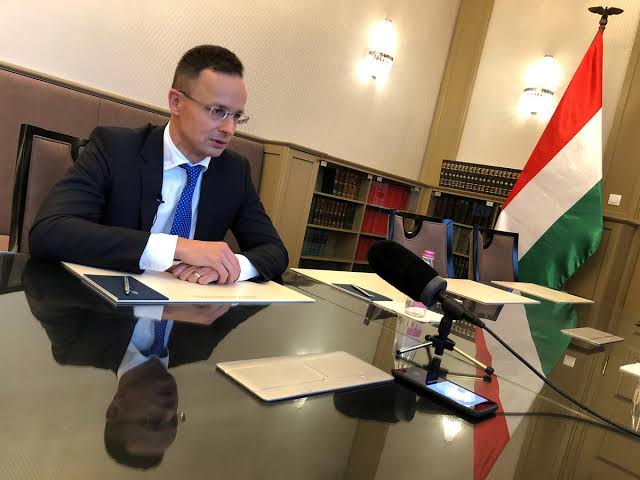Hungary will summon the ambassadors of five Nordic countries on Monday over their countries’ criticism of a controversial law that empowers Hungarian Prime Minister Viktor Orban to carry out measures by decree against the novel coronavirus.
SEE ALSO: Evacuation: Airline Operators Fault FG’s Engagement Of Foreign Carriers
On Sunday, Hungarian Foreign Minister Peter Szijjarto said on Facebook that he would summon the diplomats as Hungary “wanted no pitiful hypocritical tutelage” and reiterated Budapest would go its own way.
The law, which authorises Orban to bypass Parliament indefinitely in measures to contain the virus and mitigate its after-effects, has provoked an international wave of criticism, including from rights groups and the EU Commission.
“When countries use the COVID-19 situation for actions that undermine fundamental rights, we insist on drawing attention to that,” Danish foreign minister Jeppe Kofod said in a written comment to Reuters.
According to him, the problem is not only related to COVID-19, but the situation has worsened because the Hungarians have taken a number of measures which among other things risks undermining press freedom.
He added that there must be consequences, including financial ones, if fundamental values are not respected.
The Council of Europe, the EU’s main human rights body, was among the first to warn Hungary about its democratic backslide and its issues over freedom of expression in a March 24 letter by Secretary General Marija Pejcinovic Buric.
“An indefinite and uncontrolled state of emergency cannot guarantee that the basic principles of democracy will be observed.
“The emergency measures restricting fundamental human rights are strictly proportionate to the threat which they are supposed to counter,” Buric wrote.
The foreign ministers of Denmark, Finland, Iceland, Norway and Sweden wrote to Buric on May 6 that they share the concerns expressed in that letter.
“Even in an emergency situation the rule of law must prevail,” Buric said.
Orban has been at odds with European Union institutions since taking power in 2010, going head to head over economic policies, alleged corruption, immigration and his ever-expanding influence over all walks of life.
The combative premier has used that pretext to paint the EU as an adversary in massive campaigns, an electoral strategy that has paid handsome dividends at the polls, helping to cement his rule.
Orban, however, has left him ostracised among his European peers.
The European People’s Party suspended the membership of Orban’s Fidesz from the mainstream conservative group over such conflicts; however the premier continued to use the issue for political gain.
Orban on March 26 told Buric that the law did not give him unlimited powers and could be withdrawn by Parliament, where his Fidesz holds a two-thirds majority, at any time.
“If you cannot help us in the current crisis, please at the very least refrain from blocking our defence effort,” Orban wrote to the secretary general.
The vast government-controlled or loyal press repeated that phrase for weeks.

